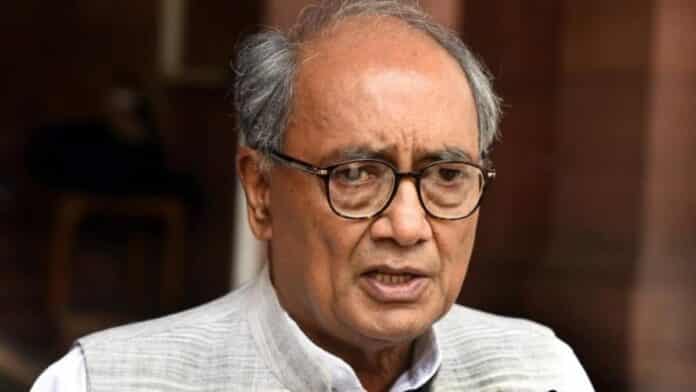A special court in Bhopal has framed charge against Congress Rajya Sabha member Digvijaya Singh under IPC Section 500 for defamation in a case filed by a BJP leader whom he had accused of being involved in the Vyapam scam that rocked Madhya Pradesh in 2013.
The court of Judicial Magistrate First Class Vidhan Maheshwari, dealing with cases against MPs and MLAs, framed the charge against Singh on Wednesday and posted the case for trial from July 1.
Section 500 (punishment for defamation) of the Indian Penal Code invites simple imprisonment for a term which may extend to two years, or with fine, or both.
Notably, a court in Gujarat’s Surat city last month sentenced Congress leader Rahul Gandhi to two years in jail after convicting him under IPC sections 499 and 500 (dealing with criminal defamation) in a case filed by Bharatiya Janata Party (BJP) MLA Purnesh Modi over Gandhi’s “Modi surname” remark.
Following the verdict, Gandhi, elected to the Lok Sabha from Wayanad in Kerala in 2019, was disqualified as a Member of Parliament (MP) under provisions of the Representation of the People Act.
BJP’s current Madhya Pradesh president V D Sharma filed the defamation case against Digvijaya Singh in 2014 after he accused him of being involved in the Vyapam scam.
On February 4 this year, the special court granted bail to Singh in the case.
The Vyapam scam relates to alleged manipulation in the selection process for government colleges and jobs conducted by the then Madhya Pradesh Vyavsayik Pariksha Mandal (Vyapam), a professional exam board. It involved the alleged impersonation of candidates, rampant copying and other malpractices
Sharma’s lawyer Sachin Verma on Thursday said Singh allegedly made defamatory imputation against his client intended to lower his image in the public eye.
However, Digvijaya Singh’s advocate Ajay Gupta while talking to PTI claimed, “There is no case against Singh worth framing charge, but the procedure adopted in such offences doesn’t have a stage of seeking discharge. Therefore, in a routine (process), the charge under section 500 of IPC has been framed without considering the pleas of my client.”




